- Home
- P. T. Deutermann
The Last Man Page 37
The Last Man Read online
Page 37
David was stunned. “What are you talking about?” he asked.
“You’ll figure it out, I’m sure, Mr. Hall. Follow the heavy water. It will become clear to you. Now: Judith Ressner.”
David’s mind was still reeling from the implications of what Gulder had been saying about Adrian. “What about Judith? Does she know all this, too? Does Ellerstein?”
“Well. Dr. Ellerstein works for me, after a fashion, and cares very much for Dr. Ressner. So when your uncle of the NRC calls, he will call Ellerstein, I think, because Dr. Ressner, the discoverer of the most fabulous treasure in the history of biblical archaeology, is very, very busy, Mr. Hall.”
David started to shake his head. Judith would never go along with this. Gulder saw it. “Dr. Ressner is a realist, Mr. Hall. She knows that, sometimes, extreme measures have to be taken by a small state such as ours. Her husband was something of a case in point, correct? Killed by a madman, but still: Skuratov was state security. Dr. Ressner is quite fond of you, I think.”
Then David got it: They had told Judith that he wouldn’t be executed as long as she kept her mouth shut about the Skuratov conspiracy. Gulder was smiling that Cheshire cat smile again. David went back to the matter of Adrian. “Are you telling me that Adrian Draper worked for you? For Israel?”
“I never said that, Mr. Hall.”
“Then our whole relationship was what, an assignment for Adrian, an Israeli spy? She was just playing me? You were playing me?”
“Much like you played Judith Ressner, is it not, Mr. Hall? Coming here under false pretenses. All that deception, first getting close to her, then striking out at the right moment? Leaving her wondering what she had done? How does that feel, Mr. Hall?”
David opened his mouth to say something, but nothing came out. Gulder got up.
“I will ask them to let you out for exercise in the mornings and afternoons,” he said, motioning to his guards that they were leaving. “These papers, of course, are for you. There will be more, from time to time, as long as you cooperate with these gentle people. They are not jailers, but they do live an exposed existence up here in the Golan. They depend on the Israeli Army, don’t they, Mr. Hall? You can see Syria from your windows, I am told.”
David just sat there, his mind bowled over by what this strange little man had been telling him.
“I’ll send up an English-Latin dictionary, Mr. Hall. This is a very old-fashioned place. Who knows, in time they may teach you how to illuminate a manuscript.”
* * *
David got up again and resumed walking, counterclockwise this time. The afternoon sun beat down out in the middle of the square, heating the stones around the fountain and wilting some of the plants and herbs. At nearly eight thousand feet, there was over a mile of atmospheric protection missing, and David took care to stay out of the sun. Gulder had been as good as his word. He had sent the dictionary and another round of newspapers. David had been able to enjoy, if only vicariously, the triumph of the discoveries in the great cistern. Adrian’s theory. His discovery. Judith’s triumph, which was as it should be. There were pictures of the treasures themselves, and also of Judith Ressner, who looked increasingly exhausted by all the media attention. The discoveries made world headlines, and already the scholarly debates had begun, with various religious factions taking widely different positions on interpreting the finds, especially the contents of the sealed scrolls. He sympathized with her. Hell, he missed her.
None of that was going to change things for David Hall. If Gulder had his way, he would remain here until the end of time. The end of his time, anyway. If Judith asked about him, or suspected that he had been executed, Israel Gulder could truthfully say, no, he hadn’t. He’s been seized by a religious vocation.
He had thought hard about escape, but there was simply no way. No tunnels to be dug, no windows to hang from, no clambering up a column here in the cloister and scampering across tiled roofs to the twenty-foot stone wall, there to drop into deep ravines on every side except the front, where the top of the wall was rounded and covered in shards of glass. The monastery itself was perched on a spire of badly eroded rock and built to withstand the siege engines of the twelfth century.
A steady wind blew up the side of the mountain during the day, rising to banshee intensity when storms came across the Mount Lebanon massif to the north and swept down their valley.
Our valley. Listen to me, he thought.
He had not seen a single human being through the windows, and he wasn’t sure he’d even seen all the monks. He’d heard them, though, when their soft chants broke the predawn silence. He wondered how long it would be before he asked to join their nocturnal vigils. He had the beard for it, if not the voice.
He was, as Shakespeare once phrased it, thoroughly mewed up.
35
Judith Ressner was alone, soaking her tired feet in the hotel’s bubbling hot tub, when Ellerstein came back from the bar, carrying two glasses of wine. Judith was wearing her bathing suit under a beach wrap. She had a silk kerchief tied around her head and was wearing dark sunglasses. She had intended to swim some laps to undo the stress of three media events that day but simply lacked the energy. The government had put her up in the hotel to make it more convenient to do press conferences. When she’d gone back up to her room, there’d been a message from Ellerstein saying that he wanted to buy her a drink that evening and that he had something important to talk about.
“Bless you, Yossi,” she said, making room for him to sit by her side. He took off his shoes and socks, rolled up his pants, and slipped his feet into the hot water. Judith smothered a smile; in his business suit, he looked ridiculous.
“Cheers,” he intoned and tasted the cold white wine. Then he made a face. “Scotch would be better.”
“This is fine. One Scotch and I would keel over into this water.”
“Keeping you running, Ms. World-Famous Archaeologist, hanh?”
She nodded. A hotel guest came into the spa and gawked at Ellerstein sitting there in his street clothes.
“So, you ever hear from Mr. Hall?” he asked gently.
She shook her head. “No. I think the government boys must have threatened him. I’d really like to talk to him, but—”
“But those same government boys don’t want that, either, do they.”
“No, they do not. I had one call from that Israel Gulder, who congratulated me on the way I was representing the nation. He also approved of the way we finessed the discovery methodology.”
“Yes, I’ll bet he did. Listen: Did Gulder tell you the American went home? Back to the States?”
She looked over at him. “Not in so many words,” she said, “but he certainly implied it. He said the less contact, the better for all concerned, more weasel-words like that.”
Ellerstein nodded thoughtfully. “You know, well, of course, you don’t know, I have been making some inquiries. Back in the States.”
“Yes? And?”
“They don’t know where he is.”
She put down the wineglass. “What?”
“They don’t know where he is. A professor I know there made a call to a friend in the U.S. Immigration Service there in Washington. Immigration haven’t seen his passport coming back into the States. No one was especially concerned or anything like that, but there it is.”
“So that means what, exactly? That he is still here, in Israel?”
“It is possible.”
Judith blinked and looked away. That could mean only one thing, she thought. No, actually, two things. Either the Israeli government still has him, or they’ve— She looked back at Ellerstein, who saw the alarm in her face.
“No, I shouldn’t think they did that,” he said. “My guess is that Gulder has him in one of those ‘secure locations’ the Americans put their vice president in when he talks out of turn. To keep a lid on that weapons business.”
“Yossi—”
“I know, Yehudit, I know. Of course this is all specula
tion. He may have gone on a world cruise for all we know. Except—”
“Except what?”
“Except I checked with the security people at his hotel. They said some police people came and gathered up his stuff—luggage, clothes in his room, his computer. No explanations, just came and got it. They signed the hotel release forms. I asked to see the forms.”
“And?”
“These were not police people. These were Shabak people. I recognized one of the names.”
“You never did tell me what your connection with Shabak was,” she said.
“It was a temporary thing, Yehudit. Back to Mr. Hall.”
“Yes, indeed. If you’re telling me he’s being held prisoner in this country, then I’m going to do something about that.”
“That’s what I came to see you about, Yehudit. I need to know something: When Mr. Gulder called you, did he imply that Mr. Hall’s good health depended on your keeping quiet about his part in the great discovery?”
“What?”
“Just think back for a moment. You said ‘words like that.’ Like what, exactly?”
She thought about it. She had finished her wine and hadn’t even noticed. Ellerstein pushed his glass toward her, and she took it. “Well,” she said, “I think he said that it would be in everyone’s best interest, especially Mr. Hall’s, if his name never arose in connection with the discoveries. I didn’t think it significant.”
“How do you feel about all that, Yehudit? It was his discovery, after all.”
“Don’t remind me, Yossi,” she said with a sigh. “I feel dishonest. But I’ve rationalized it this way: The discovery is the important thing, not me or my part in it. As David Hall said: Everyone remembers the Dead Sea Scrolls; no one remembers the Bedouin shepherd who found them. Plus—”
“Yes?”
“Well, when he called me down to Metsadá, I was ready to kill him. For going back down there. For digging, as I suspected he had been. He said then that he was satisfied in vindicating his girlfriend’s theory and that, in return for my helping him, the discovery would be mine alone. I didn’t think much about that at the time; I was too excited when he told me what was in that cave.”
“I can imagine. I still can’t quite believe what amazing things came out of that cave. Herod’s Temple. Incredible. Most incredible. I still haven’t seen them. The lines are too long, still.”
Yes, she thought. Everything was still pretty incredible. Especially the inscribed bricks. That could wait, though. Did the government have David Hall somewhere? She didn’t want to admit to Ellerstein that she missed him, but she very much did. Imprisoning him was wrong, but better than putting him in the ground.
‘Well,” Ellerstein said, drawing his feet out of the water, “I think I’m going to make a call on Israel Gulder. If they have Mr. Hall sequestered somewhere, perhaps I can arrange for you to see him. You do want to see him, yes?”
She nodded. She had much to tell him, and something to give him.
* * *
“Not only no, but absolutely no,” Gulder said, visibly annoyed. “Get out of here.”
“You’re thinking like a jailer,” Ellerstein said. “The persona suits you, but you’re making a mistake.”
“Really.”
“Yes, really. The longer you keep Mr. Hall in one of your boxes, the longer Dr. Ressner has to wonder what’s happened to him. Eventually, she will ask.”
“And I will tell her that it is none of her damned business,” Gulder said.
“That’s if she asks you.”
Gulder opened his mouth to say something but then snapped it shut. He had been about to say Who else would she ask? when the answer dawned on him.
“If she does that, goes to the media, then we will return the favor and tell the world she was not the great discoverer everybody’s making her out to be.”
A secretary came in quietly with a sheaf of papers and put them in Gulder’s in-box. He groaned. She smiled at Ellerstein and left just as discreetly.
“Or you could let her go talk to him. Satisfy herself that he is not being mistreated, that he is well and unharmed. He is well and unharmed, Mr. Gulder?”
“Hmmpf,” Gulder grunted.
“I will take that as a yes. So: Let them see each other. Let them speculate on what’s going to happen next. Their imaginations will probably conjure up more possibilities than yours ever can. Drop a hint or two that this situation will not go on forever. Let them define what that might mean.”
“Why should I do anything, Yossi?” Gulder asked. “I can recalibrate her with one phone call. She promises to keep quiet. We promise not to shoot him. That’s all there is to it.”
“No, I think you’re wrong,” Ellerstein said. “Right now she is like a capacitor, slowly accumulating a big charge of electricity. Ultimately, all capacitors need to fire. Do this and you will head off a larger problem. You said that time would eventually lay this whole matter to rest.”
Gulder sighed in exasperation. “What I meant was that we will cloak the whole Skuratov business in a fog of paperwork and endless investigations. If she does talk, there will be no facts to back up her story. No Mr. Hall, either.”
“Has no one come looking for him?”
“Only his uncle, an official with their nuclear agency, and a brother. The uncle was seriously concerned. The brother seemed to be going through the motions. We gave them the diving-alone scenario, said we’d keep looking.”
“Did they contact Ressner?”
“I doubt it,” Gulder said. “The uncle knew about Hall’s Metsadá project and had heard of the great discovery. We told him Hall found nothing but piqued the interest of the IAA. They sent a team down and found what they found. More along that line. Hall was not involved. We are grateful, etc., but since we can’t find him…”
“This is the uncle in Washington who was part of the diversion investigation, started by David Hall? A diversion involving Israel?”
Gulder frowned. “What’s your point, Yossi?”
“That could be a rather large loose end, Mr. Gulder. Let me try another argument on you: If this uncle tries to make a connection between Hall’s disappearance and the heavy water diversion case, you will need an ally, someone outside of government. That could be Judith Ressner. If we spin this correctly, give her hope that we’re working on a solution to this situation, she will be motivated to support the government’s claim that the Skuratov business never happened.”
Gulder sat back in his chair, tapping a pen against his teeth while he thought about that. “Ressner is a beautiful woman,” he said finally. “He sees her, he’s going to agitate for her to do something about his—sequestration.”
“She will caution him to remain patient, not to do anything precipitous. She will give him hope.”
“There is no hope, Yossi—we can never let him go.”
“Then let me calibrate her, as you so quaintly put it: I’ll tell her to keep doing what she’s doing, being the face of the Temple artifacts. There are ‘people’ behind the scenes working on your other problem, the fate of your Mr. Hall. You must be patient. Like that.”
“To give a man hope when there is none is a dangerous game, Yossi,” Gulder said. “You’d best be very careful with your lies.”
“That’s a yes, then?”
Gulder gave him a long look and then nodded. He gave Ellerstein a phone number to call.
36
Two weeks later the abbot joined David in the garden right after lunch and sat down next to him. David smiled and closed his book. The abbot was known as Father Kamil, and he was somewhere between seventy and a hundred years old, with the face of an Old Testament prophet and a long white beard to match. David had told the abbot all about the Second Temple finds at Masada and explained his own presence at the monastery as a way of keeping the discoveries an Israeli triumph.
“How goes the Latin lesson?” the abbot inquired, apparently uninterested in David’s backstory.
“In r
es omnia, patiencia,” David said.
“Not even close,” the abbot said with a laugh. “I have news for you. A visitor.”
“Should I be afraid?” David asked.
“Your visitor is a woman, so I would say definitely yes.”
“How would you know that, Father Abbot?”
“I was not always a priest, Mr. Hall. Many of us here lived among the Gentiles, as we like to call the rest of the world, and now we’re here, of our own free will.”
“Recognize danger when you see it, do you?” David asked.
“Perhaps you are here because you did not recognize danger when you saw it, Mr. Hall?”
“Touché,” David said with a grin. “Is my visitor Judith Ressner, by any chance?”
It was evening when the helicopter announced its approach with the usual clattering roar. A few minutes later one of the monks escorted Judith into the cloistered garden, bowed, and left them alone. David stood up to greet her, not quite sure of how to do it. She solved his problem by dropping her tote bag and coming into his arms. They held each other for a long time before she finally lifted her head.
“I have missed you, Mr. Hall.”
“Never thought I’d see you again,” David said. “How did you manage this?”
“Yossi Ellerstein managed it, not me,” she said, sitting down on the stone bench and pulling her bag over. “Have you become a monk, then?”
David looked down at his monastery garb and then tugged on his beard. “How do I look?” he said.
“Suitably holy,” she said with a smile. “I must be quick. The helicopter must leave before full dark. I brought you something.”
“A ladder, I hope,” he said. “Or a one-way ticket out of this place? A sign that I’m not stuck here forever?”
“No ladders,” she said. “Yossi tells me that he and other people are working to get you released. First the government must bury the Skuratov incident. That takes time.”
“I told Ellerstein that I could damned well keep that secret,” he said. “I have nothing to gain and everything to lose by opening my yap.”

 The Nugget
The Nugget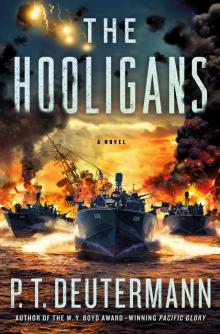 The Hooligans
The Hooligans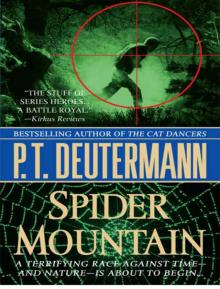 SPIDER MOUNTAIN
SPIDER MOUNTAIN![Cold Frame [retail] Read online](http://i1.bookreadfree.com/i/03/19/cold_frame_retail_preview.jpg) Cold Frame [retail]
Cold Frame [retail] Sweepers
Sweepers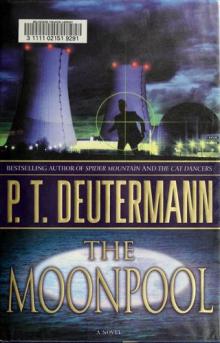 Cam - 03 - The Moonpool
Cam - 03 - The Moonpool Trial by Fire
Trial by Fire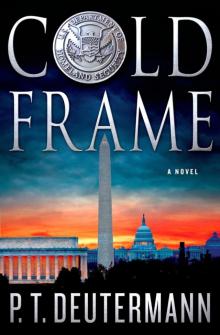 Cold Frame
Cold Frame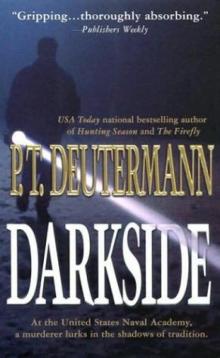 Darkside
Darkside Cam - 04 - Nightwalkers
Cam - 04 - Nightwalkers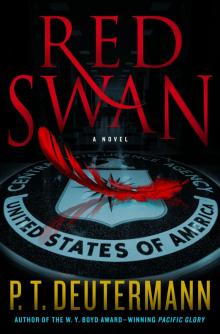 Red Swan
Red Swan The Commodore
The Commodore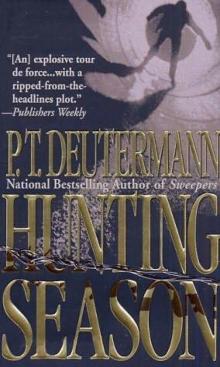 Hunting Season
Hunting Season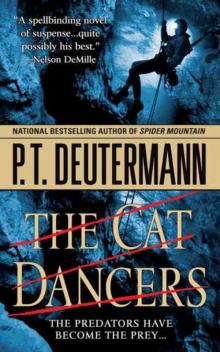 The Cat Dancers
The Cat Dancers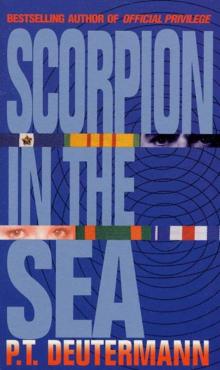 Scorpion in the Sea
Scorpion in the Sea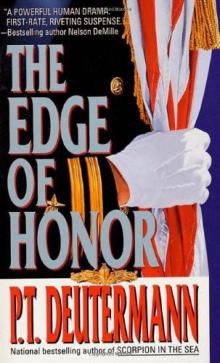 The Edge of Honor
The Edge of Honor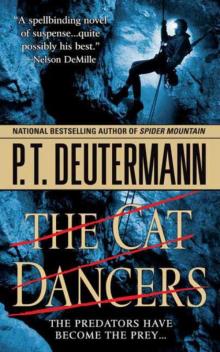 The Cat Dancers cr-1
The Cat Dancers cr-1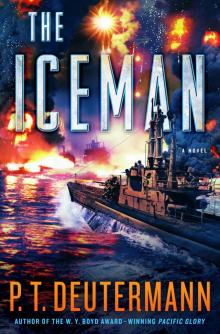 The Iceman
The Iceman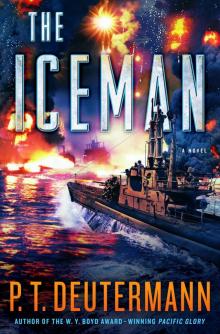 The Iceman_A Novel
The Iceman_A Novel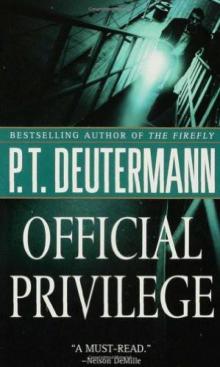 Official Privilege
Official Privilege Sentinels of Fire
Sentinels of Fire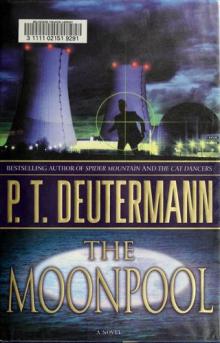 The Moonpool cr-3
The Moonpool cr-3 Nightwalkers cr-4
Nightwalkers cr-4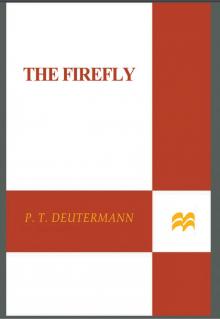 The Firefly
The Firefly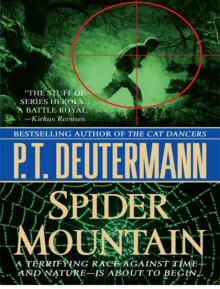 Spider mountain cr-2
Spider mountain cr-2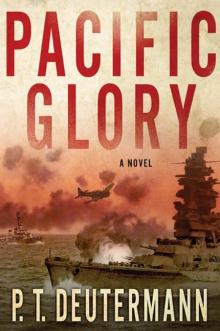 Pacific Glory
Pacific Glory The Last Man
The Last Man